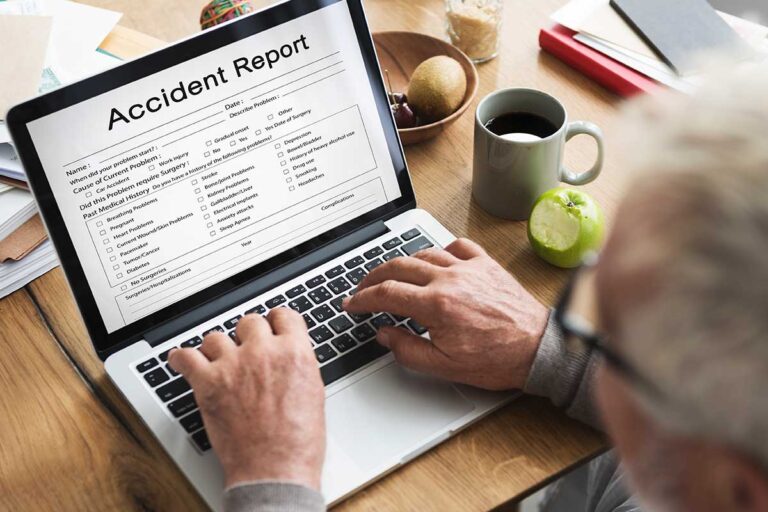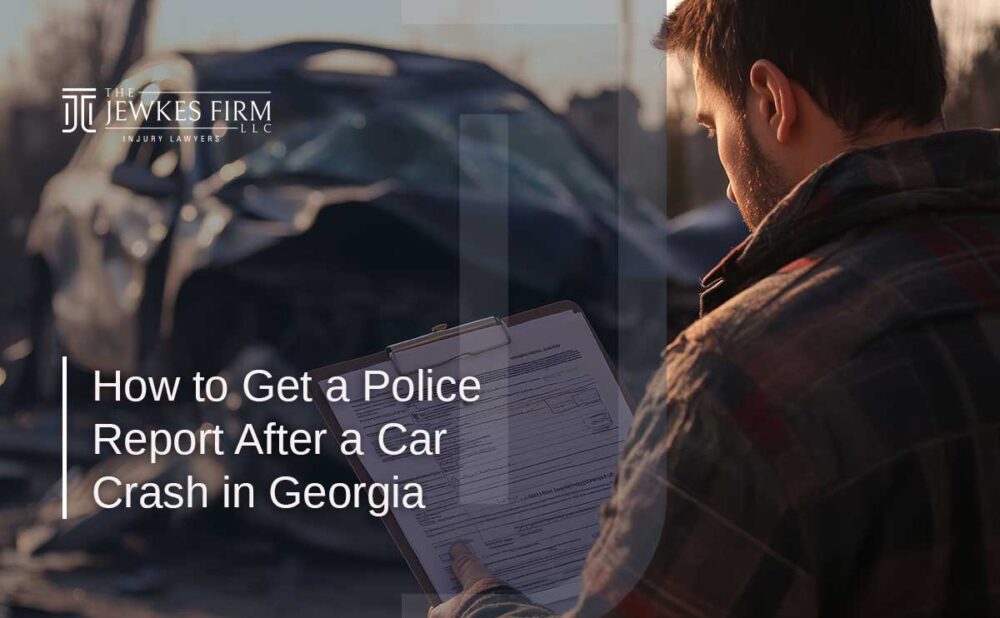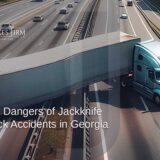How to Get a Police Report After a Car Crash in Georgia
If you’ve been injured in a car crash in Georgia, obtaining the official police report is a critical step. The crash report provides an independent law-enforcement record of the incident, detailing who was involved, what happened, where and when it occurred, and often what the investigating officer observed. Without it, you may face an uphill battle with insurance companies or in building your personal injury claim. Here’s a comprehensive guide on when police generate reports in Georgia and how you can access yours.
Is a Police Report Required for Every Car Accident?
Under Georgia law, state and local law enforcement agencies typically file a police report for accidents that result in:
- Injury or death
- Property damage exceeding $500
- A vehicle that must be towed
Minor fender benders without injuries or significant damage often do not warrant a police report. The exception is if officers are called to the scene.
Even if you don’t think your accident meets these criteria, reporting it is wise. The on-scene assessment may not fully capture the extent of damages or bodily harm that could surface later.
When someone calls 911, a responding officer usually arrives and completes a report documenting key details such as driver and vehicle information, as well as road and weather conditions.
Injured In A Car Wreck? Contact Us For A Free Consultation
Injured In A Car Wreck?
Why Is a Police Report Important for a Georgia Car Accident Claim?
A police report is an official document created by law enforcement officers who respond to the scene of a crash. A Georgia police report holds substantial weight in legal claims following a car accident for several reasons:
- Official Documentation. This report serves as an official record detailing the incident’s fundamental aspects, essential for establishing case facts.
- Officer Observations. The responding officer’s notes may include vital observations, enhancing your claim with unbiased evidence.
- Contact Information. The report includes vital contact details for all parties and witnesses, facilitating follow-up investigations or evidence gathering.
- Establishing Liability. Insurance providers and legal professionals frequently refer to police reports to assess claims and assign liability. Having this report strengthens your pursuit of fair compensation.
For anyone pursuing a personal injury claim or negotiating with insurance companies, having an accurate police report helps support your version of events and strengthens your case.
How to Get a Copy of Your Georgia Car Accident Report
The first step is to identify the responding law enforcement agency. Depending on where the accident occurred, the responding agency could be a local city police department, county sheriff’s office, or Georgia State Patrol.
Police reports are not available immediately after the accident. The applicable law enforcement agency typically completes and enters the report into the system within 5 to 10 business days.
You can obtain a copy of your crash report in Georgia through one of three ways: by mail, online, or in person. Below are steps for each method.
Requesting Georgia Crash Reports by Mail
To receive your accident report by mail, start by completing the GDOT Request Form. This form will require essential details, including your contact information, the accident date, and the report number (if known).
To receive a mailed copy of the report, you will need to make a payment—usually, a money order or cashier’s check for $5 is sufficient. If you need a certified copy, an additional $2 fee applies. For security reasons, do not send cash or personal checks.
Mail the form and payment to:
Georgia Department of Transportation
935 United Ave. SE, Bldg 24
Atlanta, GA 30316
Keep in mind, processing requests through mail may take at least two weeks. For expedited service, call 1-866-215-2771 or submit your request online.
Requesting a Georgia Accident Report Online
To retrieve your report online, visit the BuyCrash website. Once on the site:
- Select “Georgia” and then “All GA Agencies.”
- Enter required information: last name of a driver, passenger, owner, or pedestrian involved; the crash date; and one of the following—crash report number, vehicle identification number (VIN), or driver’s license number.
- Provide your email address and state your connection to the accident (e.g., involved party, vehicle owner, pedestrian).
- Enter payment information and complete your transaction.
- Download the report immediately if available.
Obtaining a Georgia Crash Report In Person
If you prefer to obtain your report in person, visit your local police precinct or police headquarters. Generally, reports are available within two to three business days after the incident is fully processed.
It is vital to bring valid identification when making your request. Be prepared for possible fees associated with the report, and consider verifying the availability of your report by calling ahead.
Accessing Reports Through Georgia’s Open Records Act
If the Georgia State Patrol handled the investigation, contact a state patrol post or the Open Records Unit and submit an Open Records Request form to facilitate processing. While the form is optional, it streamlines the request. For other accident reports, reach out to GDOT’s Crash Reporting Unit. The $5 standard fee applies.
Alternatively, use Georgia’s Efficient Purchase of Records and Transfer System (EPORTS) to submit your request electronically.

GEORGIA PERSONAL INJURY LAWYER NEAR ME

What Information Do You Need to Request Your Accident Report?
Regardless of the method you choose, gather the following details to streamline the acquisition process:
- Your full name and contact information (address, email, phone)
- The last name listed on the report
- Date and location (city, county) of the accident
- Law enforcement agency involved
- Responding officer’s name or badge number (if known)
- Crash report number
- Full names of involved parties
- Valid identification for in-person requests
Cost to Obtain a Georgia Police Accident Report
Many Georgia agencies or online services charge a small fee (often around $5) to access the crash report. A certified copy incurs an additional $2 fee. Payments by mail should be money orders or cashier’s checks. In-person fees can vary by agency. Online purchases usually cost less than $15. Check with the relevant agency for exact fees.
Who Can Access Georgia Police Accident Reports?
Under Georgia law (O.C.G.A. § 50‑18‑72(a)(5)), if you were a driver, owner, injured person, or legal representative, you have a right to access the crash report. The general public can access police reports, but certain conditions apply. You must provide a written statement outlining your connection to the collision to obtain a crash report.
Eligible parties include:
- Involved vehicle drivers
- Property owners affected by the accident
- Passengers or injured bystanders
- Witnesses to the event
- Insurers associated with the involved vehicles
- Legal representatives, journalists, and governmental officials
If you are not a directly involved party (for example just an insurance adjuster), you may still request under open records, but redactions may apply. Ask about “statement of need” forms.
Processing Time for Police Accident Reports
The timeline for receiving a police report can differ based on the request method.
- Online requests often deliver reports within minutes once processed.
- Mail requests take at least two weeks for processing and delivery.
- In-person requests generally take two to three business days after the crash.
Choose the method that fits your timing needs. Once you receive a copy, carefully review it for accuracy. If you notice errors or omissions, you may contact the police department for corrections or clarifications.
Need a Free Consultation? Need a Skilled Attorney?
Free Consultation
Call (770) 771-5130
If you’ve been injured, you need to hire the best legal care to assist you with your claim. Get a FREE consultation today!
What if You’re Uncertain About Which Police Department Responded to Your Accident?
If you don’t know the responding agency, try searching on BuyCrash using the last name of an involved individual and the crash date. Additional identifiers like report numbers, VINs, or driver’s license numbers help narrow results.
If unsuccessful, contact local city police, county sheriff’s offices, or the Georgia State Patrol posts in the accident area. The GDOT Crash Reporting Unit can also assist.
What If the Police Never Came or No Report Was Filed?
In Georgia, not every crash automatically gets a full police report—especially minor collisions with low damage and no injuries.
– If no officer responded, you may not be able to get an “official” police report from law enforcement.
– In that situation, you should still document the incident yourself: take your own photos, get witness info, write down what happened while it’s fresh, and report to your insurer.
– Notify your attorney—The Jewkes Firm can strategize around the lack of a formal report (e.g., relying more on other evidence).
Can You File a Police Report Yourself If Officers Didn’t Respond?
Yes. In instances where law enforcement did not respond to your crash, you can still document the crash using the Georgia Personal Report of Accident Form (SR-13). Submit this form to GDOT to ensure official recording. This self-reported document may support insurance claims or legal actions.
Is an Injury Required for Police to File an Accident Report?
No. In Georgia, police will generally file a report if there is visible property damage over $500, injury or death occurs, or if any party requests a report. Reporting is important even when injuries aren’t evident.
Do Police Need to Issue a Ticket to File a Report?
No. Police file reports based on accident circumstances, not the issuance of citations. Officers will document the event if there’s significant property damage, injuries, fatalities, or upon request from any involved party.
Tips for Working with the Report and Your Attorney
Don’t delay getting your report. It’s vital for filing insurance claims and consulting with an attorney. It helps you lock in the facts early while memories and evidence are fresh. Insurance companies often use the report to evaluate fault and value – so delay may reduce your negotiating leverage.
If you wait too long and someone loses, alters, or delays the report, you might face additional hurdles.
Keep multiple copies as you may need to provide the report to insurance adjusters, medical providers, and your personal injury lawyer. If you’re injured or if someone disputes liability, The Jewkes Firm can use the police report to build a strong case on your behalf. We understand how to interpret the report and gather additional evidence.
- When you receive your report, check it for accuracy: names spelled correctly, vehicle details, date/time, location. If there are obvious errors, speak with your attorney about contacting the agency for corrections.
- Provide the report promptly to your attorney so they can begin building your case and notifying insurers.
- Keep copies for your records.
- Use the report to identify witness names or statements captured by the officer—this can help your attorney locate and preserve those witnesses.
- If you are filing a claim or lawsuit, the report becomes part of your evidence foundation. The sooner you get it, the sooner your attorney can assess liability and potential damages.

Contact a Georgia Car Accident Attorney
Dealing with the aftermath of an automobile accident is overwhelming. Between medical treatment, insurance claims, and legal matters, it’s crucial to have experienced representation on your side. At the Jewkes Firm, under the guidance of Attorney Jordan Jewkes, we understand how critical the crash report is to your injury case. Here’s what we do for you:
- We help locate which agency handled the crash and access the report via the proper channel (online, mail, in‑person).
- We review the report for key details: contributing cause, driver actions, scene diagram, citations, witness lists.
- We integrate the report with other evidence (medical records, vehicle damage, witness statements, expert opinions) to build a strong case.
- We act quickly so you don’t lose out on important deadlines or evidence.
- We communicate clearly and practically: what the report means for your claim, how we may establish fault, and what steps you should take next.
If you or a loved one have been in a car crash in Georgia and you’re unsure how to obtain the police report—or how it fits into your claim—please contact us at (770) 771-5130 for a no‑obligation consultation.
Frequently Asked Questions
How long does it take to get a police report after an accident in Georgia?
In Georgia, police reports are typically available within 3 to 5 business days after the accident. However, depending on the complexity of the crash, it may take longer. It's important to request the report as soon as possible to avoid delays in your insurance claim or personal injury case.
Where can I get a copy of my police report in Georgia?
You can request it from the law enforcement agency that responded to the crash, either in person, online, or by mail.
Is there a fee to obtain a police report in Georgia?
Yes, most agencies charge a small fee ranging from $5 to $15 for a copy of the report.
What if the police didn’t file a report after my accident?
If the damage was minor and no report was filed, you may still obtain an accident report through your insurance or by contacting the responding agency directly.
Can The Jewkes Firm help me get my police report?
Absolutely. We assist clients in obtaining police reports promptly and use the information to build a strong personal injury case.
Can I get a police report if the accident didn't involve me?
In Georgia, you can request a police report if you were a party involved in the accident, but if you were not directly involved, you may face restrictions. However, as an insurance adjuster or legal representative, you may still be able to request the report through an open records request.





